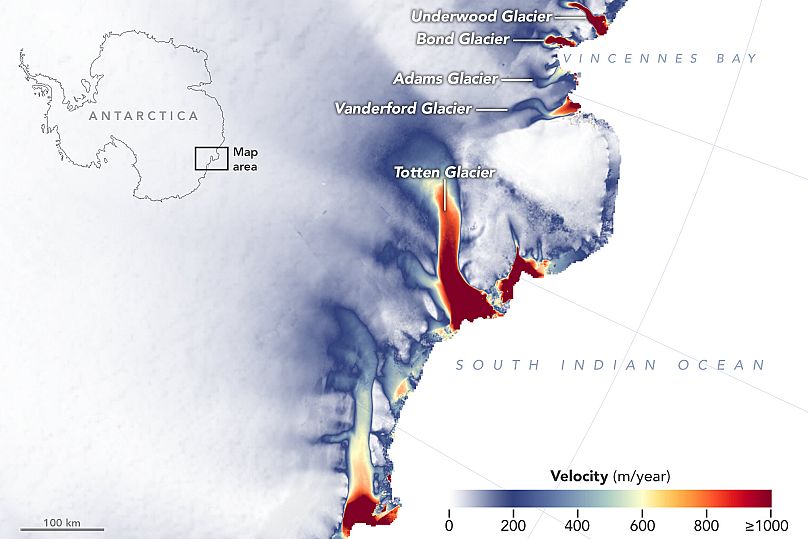It could "reshape coastlines around the world," NASA warned.
Glaciers in East Antarctica have begun to melt which could "reshape coastlines around the world", NASA scientists have warned.
Satellite imaging has shown that a group of glaciers spanning one-eighth of East Antarctica — long considered more stable than its western neighbour — have begun to lose ice.
"East Antarctica has the potential to reshape coastlines around the world," NASA said in a blog post on Monday.
The loss of ice there, it added, hints "at widespread changes in the ocean".
The research, led by NASA glaciologist Catherine Walker, was conducted using new maps of ice velocity and height surface elevation created as part of a project to track the movement of the world's ice.
It found that the Totten Glacier — which contains enough ice to raise sea levels by at least 11 feet (3.3 metres) — and several smaller nearby glaciers are losing ice because of "warming ocean waters".
Four glaciers in Vincennes Bay, west of Totten, have lowered their surface height by about 9 feet (2.7 metres) since 2008, while a collection of glaciers along the Wilkes Land coast have doubled their rate of lowering since 2009 with their surface going down by about a quarter of a metre every year.
"These two groups of glaciers drain the two largest subglacial basins in East Antarctica, and both basins are grounded below sea level," Walker said.
"If warm water can get far enough back, it can progressively reach deeper and deeper ice. This would likely speed up glacier melt and acceleration, but we don't know yet how fast that would happen.
"Still, that's why people are looking at these glaciers because if you start to see them picking up speed, that suggest that things are destabilizing," she added.












